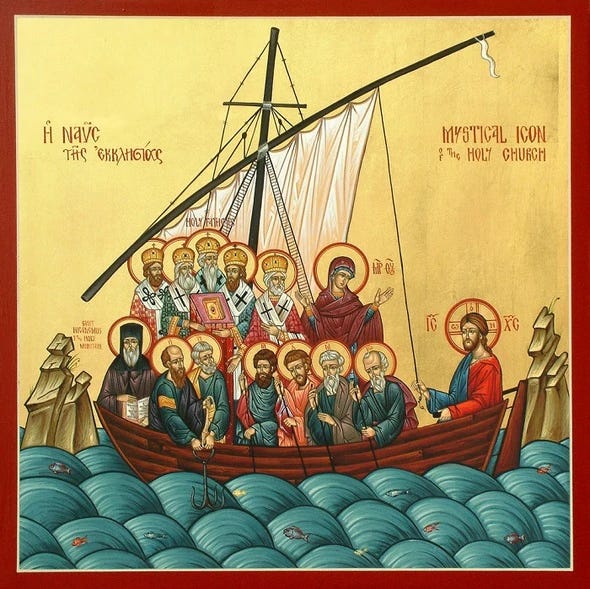From JOURNALS AND PAPERS (1854)
When "Church" becomes an "abstraction."
“Such an abstraction (Abstraktum) today is ‘the Church.’ People have hit upon making it into a person, and by first of all talking brilliantly about it as person, about its birth, its career, etc., finally getting into the habit of regarding the Church as the Christian—in another sense there are no Christians. The Christians, then, vacation behind this abstraction. Solemnly, profoundly, brilliantly, they talk about the Church—but single individual Christians, of them there is none—or, if you will, there are plenty of them, millions of them, so that a million Christians more or less means no more than one sausage more or less during the butchering season.”
Kierkegaard was convinced that one of the great temptations of modernity is to think in abstractions. It is a tendency, he argues, that turns up in philosophical systems, political movements, and popular media. Given this wide cultural footprint, it is no surprise that abstraction has wiggled its way into Christian thought as well. In this journal passage, Kierkegaard suggests why this is a problem: people are all too willing to talk about “what the Church needs to do,” “corruption in the Church,” or “the future of the Church,” even as they disregard personal accountability. Abstraction, as he sees it, is tantamount to escapism.



I believe that this was sort of a crimson thread that ran through much of Vatican II was it not? Again, I may be incorrect. I’m not a Catholic, but I’ve been interested in all of the challenges facing the RCC, as well as all denominations. We are Episcopalian (certainly one facing its own challenges), but much more 1928 Prayer Book Anglicans in our beliefs.